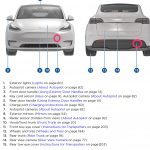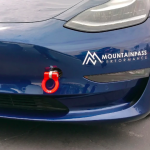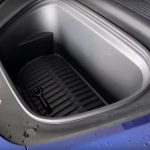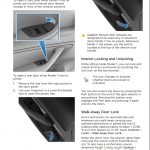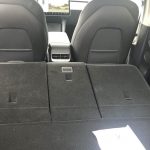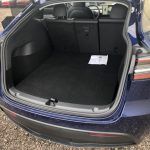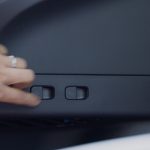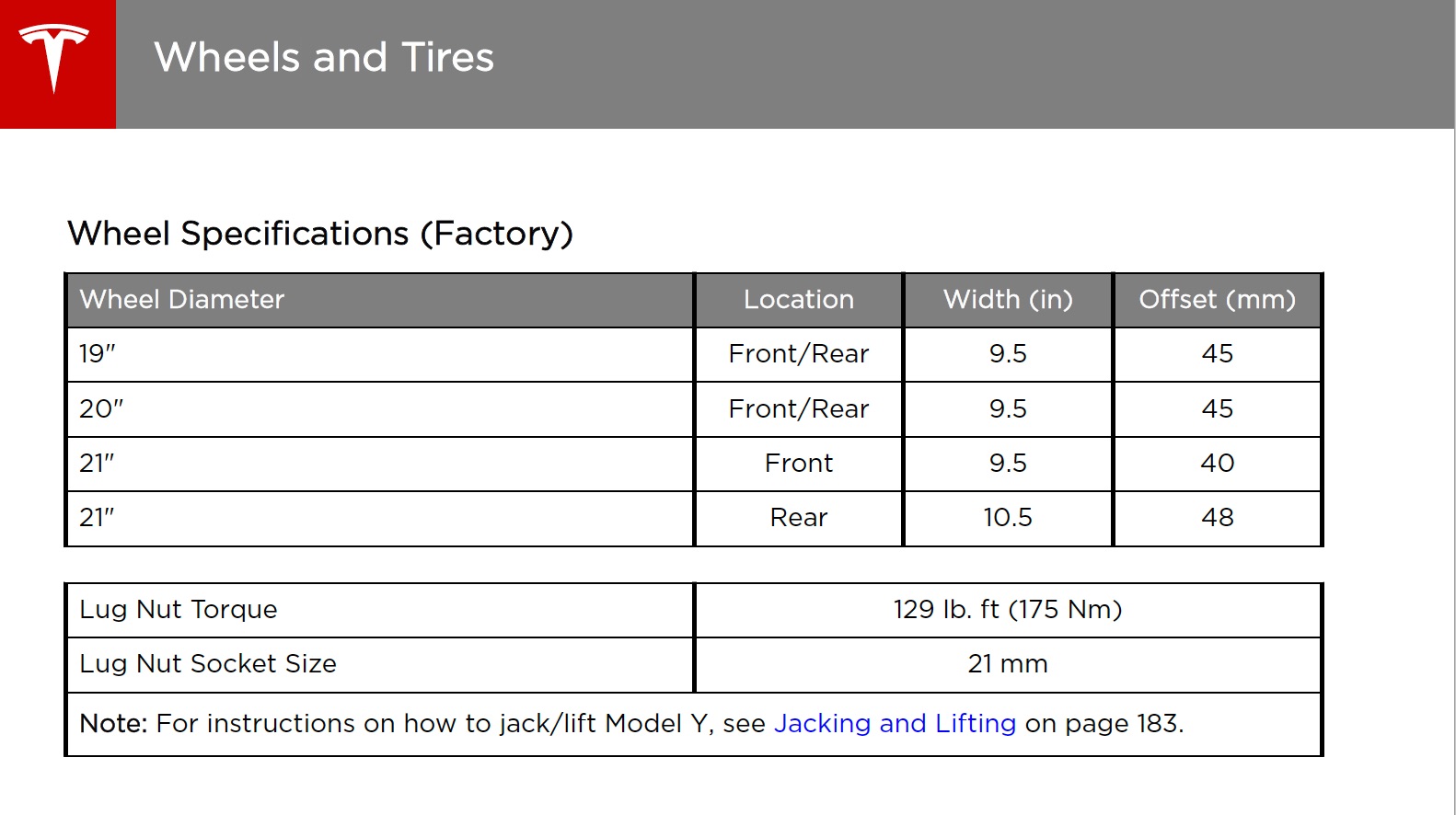The Tesla Model Y and Model 3 are both designed to cater to the mass market. Both vehicles share 75% of their parts since they’re optimized for quick production. But even vehicles that are three-quarters similar have key differences, some of which were revealed in the recently-released Tesla Model Y Owner’s Manual.
From their tow eye hooks to their speakers to their wheel configuration, the Model Y and Model 3 feature subtle differences that make them distinct from each other. Here are 12 of these key differences, as outlined by Tesla owner-enthusiast Tesla Raj in a recent video.
We’ve highlighted some of the key differentiators below.
Tow Eye Hook
Tesla has added a second tow eye hook to the back of the Model Y for added convenience when towing the vehicle from either end.
In times when a Tesla Model Y may need to be transported on a flatbed truck, the vehicle can be placed in Transport Mode and winched by way of a tow eye hook and onto the back of a flatbed truck while its wheels remain free-rolling.
Compared to the Tesla Model 3, which is equipped with a tow eye hook only in the front of the vehicle, Model Y has a cover on the right side of the rear bumper to conceal the second tow eye. This can be seen in the vehicle’s diagram in the Model Y Owner’s Manual.
- Tesla Model Y frunk tow eye (Credit: Ben Sullins)
Emergency Door Release Handles
The Tesla Model 3 met some criticism when it was produced with emergency release handles only available on the front doors. Tesla addressed the issue in Model Y by adding emergency release handles on all doors. The Model Y rear emergency release handle is located under a flap inside the bottom of the rear door pocket.
Emergency release handles are only required in situations where the vehicle does not have power. “In the unlikely situation that Model Y has no power, these electrically-powered buttons at the top of the door handles no longer work. However, the doors are equipped with mechanical releases so that you can still open them,” notes Tesla in its Model Y Owner’s Manual.
- Tesla Model Y emergency door release (Credit: Tesla)
- Tesla Model Y rear door emergency release (Source image: Eweaver1983271 via Reddit)
Trunk Space, Rear Seats, and Legroom
No surprises, but the trunk space for Model Y is drastically larger than that of the Model 3. Factoring in Model Y’s taller hatchback design versus Model 3’s traditional trunk and the difference in cargo space becomes obvious. Model Y boasts a massive 68 cubic feet of cargo volume compared to 15 cubic feet for Model 3.
The rear seats of the Model 3 and Model Y are also quite different in the way that the all-electric sedan’s fold 60/40. Model Y, on the other hand, has three seats, all of which could be folded down individually. The Model 3’s rear seats can also be folded down only through the rear, while the Model Y provides two ways to fold down its second-row seats and includes a center passthrough when the middle seat is folded down.
Model Y has two switches on the left side of the trunk that gives owners ease of access to the second-row seats directly from the trunk. Activating the switch will fold-down each corresponding rear seat.
The Model Y seats appear to be the same design as the Model 3, however, are mounted on risers for better legroom and overall comfort than Model 3. Rear seat legroom in the Model Y is improved over Model 3 by roughly 15%, although it looks like some of it was borrowed from the 2% reduction in front legroom when compared to Model 3. The headroom between Model Y and Model 3 is relatively the same and differ only by 1-2%.
Tesla Model Y vs Model 3 Leg Room
- Front: Model Y – 41.8 in (1,063 mm) vs Model 3 – 42.7 in. (1,085 mm)
- Rear: Model Y – 40.5 in (1,029) vs Model 3 – 35.2 in (894 mm)
- Tesla Model Y trunk (Credit: Eweaver1983271 via Reddit)
- Tesla Model Y rear seat fold down levers (Credit: Tesla)
- Tesla Model Y rear door emergency release (Source image: Eweaver1983271 via Reddit)
Wiring System and Heat Pump
Arguably the most notable difference between the Model Y and Model 3 in terms of core design improvement is the wiring system and heat management. Tesla added a heat pump to the Model Y, which could help the all-electric crossover maximize its range during winters. In addition and as pointed out by TeslaRaj in his video, the diagram for Model Y appears to show a single track for wiring as opposed to Model 3 which has two.
Teslarati will explore both of these points in detail in an upcoming story.
Wheel Size and Specifications
The Tesla Model Y’s wheels are 9.5 inches wide, which are slightly larger than the Model 3’s 8.5-inch wheels. It should be noted that the Model Y Performance comes with a staggered wheel setup, with the front wheels being 9.5 inches and the rear wheels being 10.5 inches wide.
See more: Tesla Model Y with Performance Upgrade Uberturbine Wheels
Rear Speakers
Both the Tesla Model 3 and the Tesla Model Y are fitted with a suite of premium speakers that provide a great listening experience for owners. They do have differences in the way that the Model 3’s rear speakers are located on a shelf behind the rear seats, while the Model Y has its rear speakers on the trunk hatch.
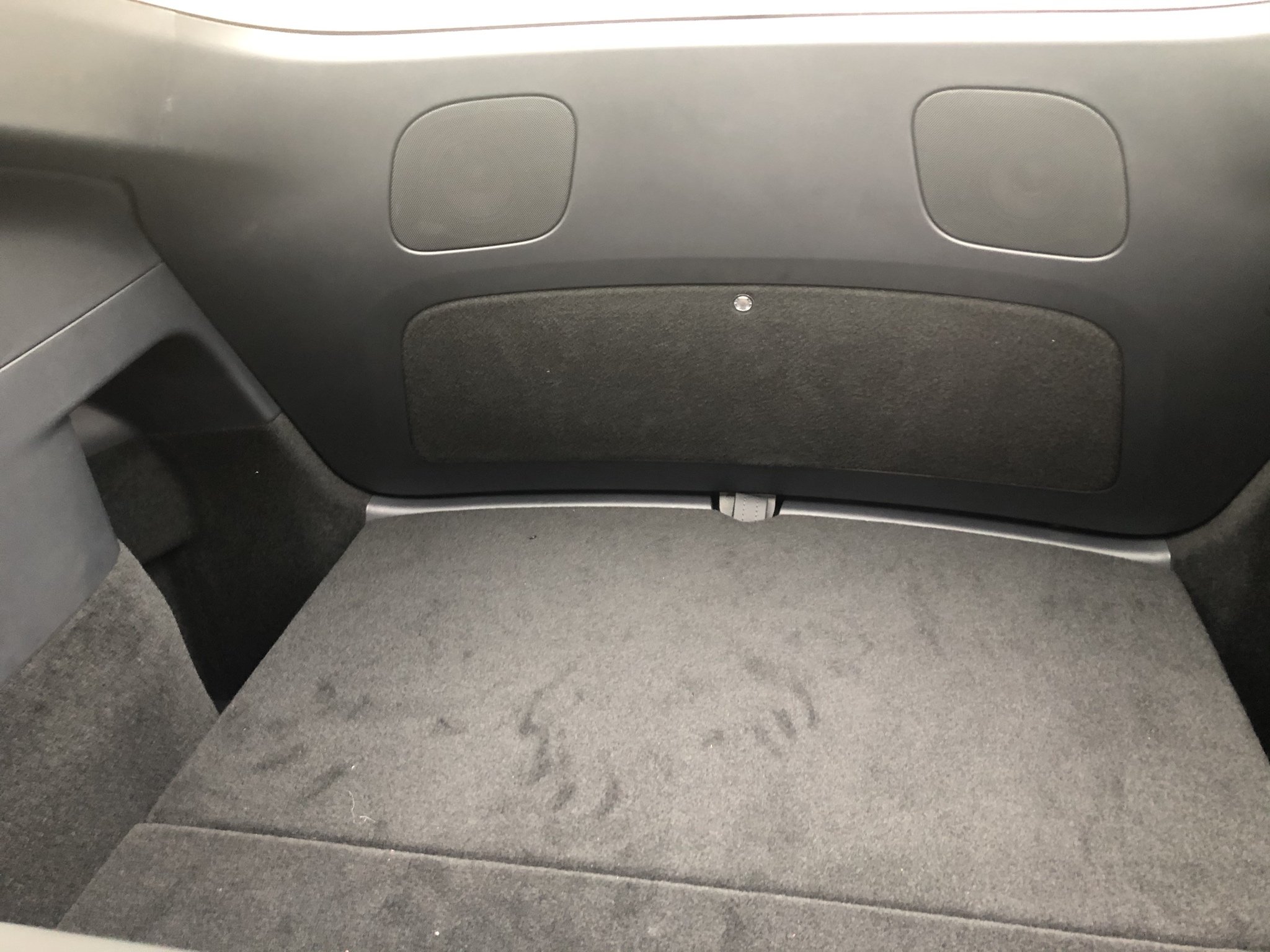
Coat Hooks
Both the Tesla Model 3 and the Model Y come with coat hangers, though the all-electric sedan’s is located on the crossbar that goes between the B pillars. The Model Y, with its seamless glass roof, has its coat hangers in the second row.
Inductive Phone Charger
The Tesla Model Y is equipped with a wireless charging pad, as well as USB-A and USB-C slots. On the other hand, the Model 3 is fitted with wired charging options and a dual USB-A slot. Owners would likely appreciate the Model Y’s wireless charging features, as most flagship and midrange mobile devices today come standard with wireless charging. See Tesla Model Y wireless phone charger.
Rear USB ports
The USB ports of the Model 3 and Model Y in the second row are also different. The Model 3 is fitted with two USB-A ports, while the Model Y is equipped with two USB-C ports. Considering that the two vehicles share 75% of their parts, it would not be surprising if Tesla ends up equipping the Model 3 with USB-C ports in the future.
Tesla notes in the Model Y Owner’s Manual that the rear USB ports are for charging devices and do not communicate with the vehicle like the front USB ports that can be used for recording via TeslaCam.
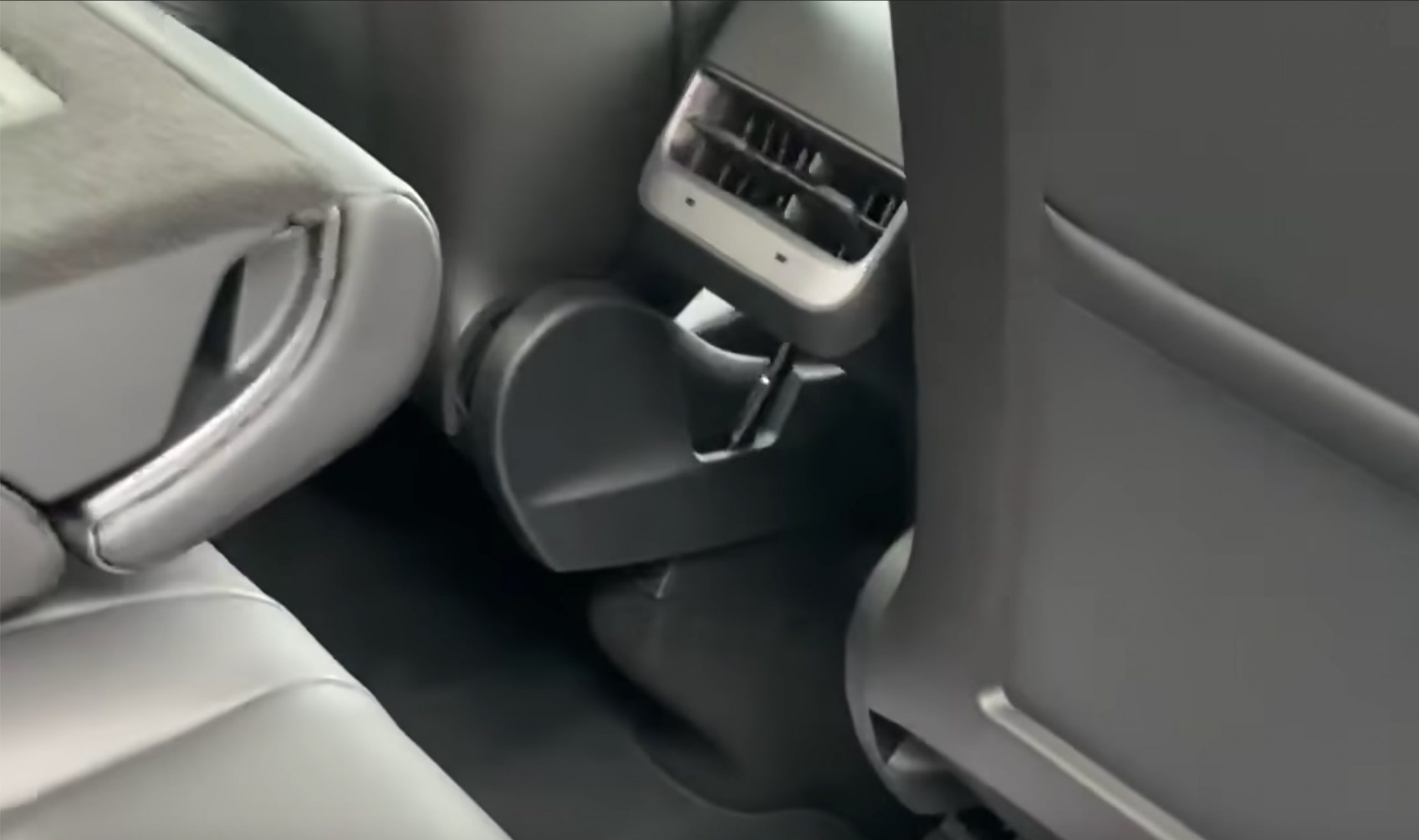
Power Liftgate
The Model Y is equipped with a power liftgate, which provides owners an automatic and convenient way to open and close the vehicle’s rear hatch by way of the center touchscreen or Tesla mobile app. This feature is not present in the Model 3, which is one of the reasons why aftermarket power truck mods became quite popular in the Tesla community.
See Tesla Model Y’s power liftgate in action.
A big thanks to Tesla Raj for compiling this info. Check out this video below.

News
Tesla influencers argue company’s polarizing Full Self-Driving transfer decision
Tesla maintains it will honor transfers for orders with initial delivery windows before the deadline and offers full deposit refunds otherwise, citing longstanding fine print that the program is “subject to change at any time.”
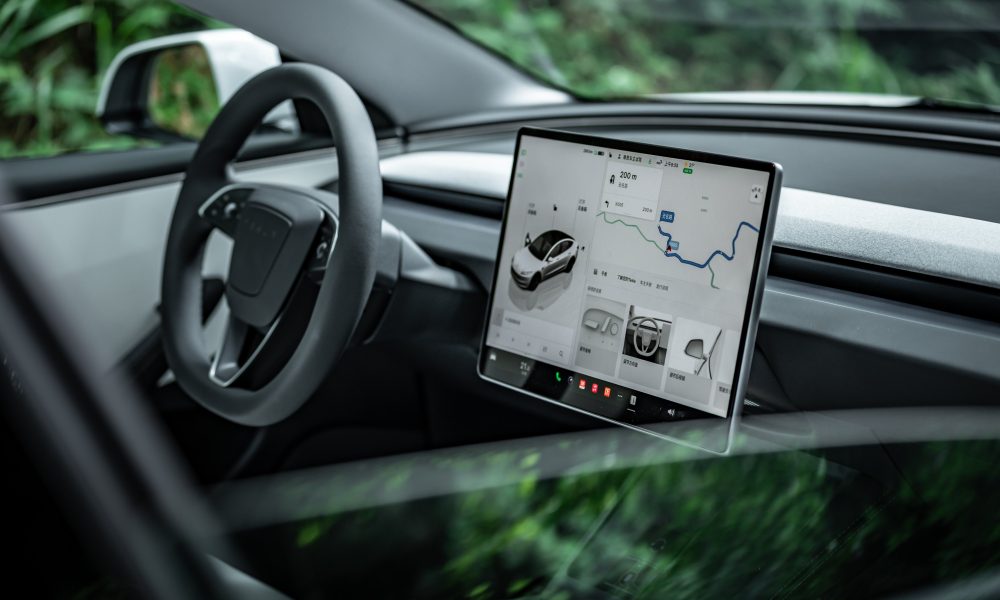
Tesla’s decision to tighten its Full Self-Driving (FSD) transfer promotion has ignited fierce debate among owners and enthusiasts.
The company quietly updated its terms in late February 2026, changing the eligibility from “order by March 31, 2026” to “take delivery by March 31, 2026.”
What began as a flexible incentive to boost sales, allowing buyers to transfer their paid FSD (Supervised) to a new vehicle, now excludes many, particularly Cybertruck owners facing delivery delays into summer or later.
Tesla maintains it will honor transfers for orders with initial delivery windows before the deadline and offers full deposit refunds otherwise, citing longstanding fine print that the program is “subject to change at any time.”
The reversal has polarized the Tesla community, with accusations of a “bait-and-switch” clashing against defenses of corporate pragmatism. Many owners who placed orders under the original wording feel betrayed, especially as production backlogs and new unsupervised FSD rollout complicate timelines.
However, Tesla has allowed them to cancel their orders and receive a refund.
Critics of the decision argue that the change disadvantages loyal customers who helped fund FSD development, calling it poor communication and a revenue grab as Tesla pivots toward subscriptions.
Popular influencers have amplified the divide. Whole Mars Catalog struck a measured but firm tone, acknowledging the original “order by” language but emphasizing Tesla’s right to adjust terms. He has continued to defend Tesla in this particular issue:
Sad to see so many fans trashing Tesla with such extreme language.
LIARS!!! PATHETIC!!! And if you aren’t as furious and angry as they are they are you’re “worshipping” and saying “they can do no wrong”.
Let’s get real here. They’re not liars. They offered FSD transfer to us… https://t.co/3Ay7vGaVR6
— Whole Mars Catalog (@wholemars) March 3, 2026
He criticized extreme backlash as “dramatization” and “spoiled kids,” noting the unsupervised FSD era and broader sales challenges make blanket transfers financially risky. Whole Mars advocated for polite outreach to CEO Elon Musk over the issue.
Rather than “calling them out”, I would simply say “Hey Elon, really hoped to be able to do FSD transfer on my cybertruck but the terms changed. Would really appreciate if Tesla could extend this to everyone who ordered before the terms changes”
that would probably work
— Whole Mars Catalog (@wholemars) March 3, 2026
In a contrasting perspective, Dirty TesLA voiced sharper frustration, posting that blocking transfers feels “crazy” and distancing himself from “people that want to worship a corporation and say they can do no wrong.” His stance resonated with owners who view the policy flip as disrespectful to early adopters.
Popular Tesla influencer Sawyer Merritt captured the frustration felt by thousands. In a widely shared thread viewed over 700,000 times, Merritt detailed how pre-change Cybertruck orders now risk losing FSD eligibility unless their initial delivery window falls before March 31.
It’s not a contradiction, it’s a change in policy that Tesla just made an hour ago. I am trying to check if the change is retroactive to all existing orders, including Cybertruck AWD orders, because if it is, that sucks big time.
— Sawyer Merritt (@SawyerMerritt) February 28, 2026
The controversy underscores deeper tensions—between Tesla’s need for revenue discipline and owners’ expectations of goodwill. As FSD evolves toward unsupervised capability, the community remains split: some see the change as necessary business, others as a broken promise. Whether Tesla reconsiders under pressure or holds firm remains to be seen, but it does not appear they are planning to budge.
News
Tesla Semi’s latest adoptee will likely encourage more of the same
Public visibility matters. When shoppers see a trusted name like Ralph’s running clean, high-tech trucks on public roads, skepticism fades. Competitors such as Albertsons, which pre-ordered Semis years ago, and other chains chasing ESG targets now have proof that electric autonomy works in real-world grocery fleets.
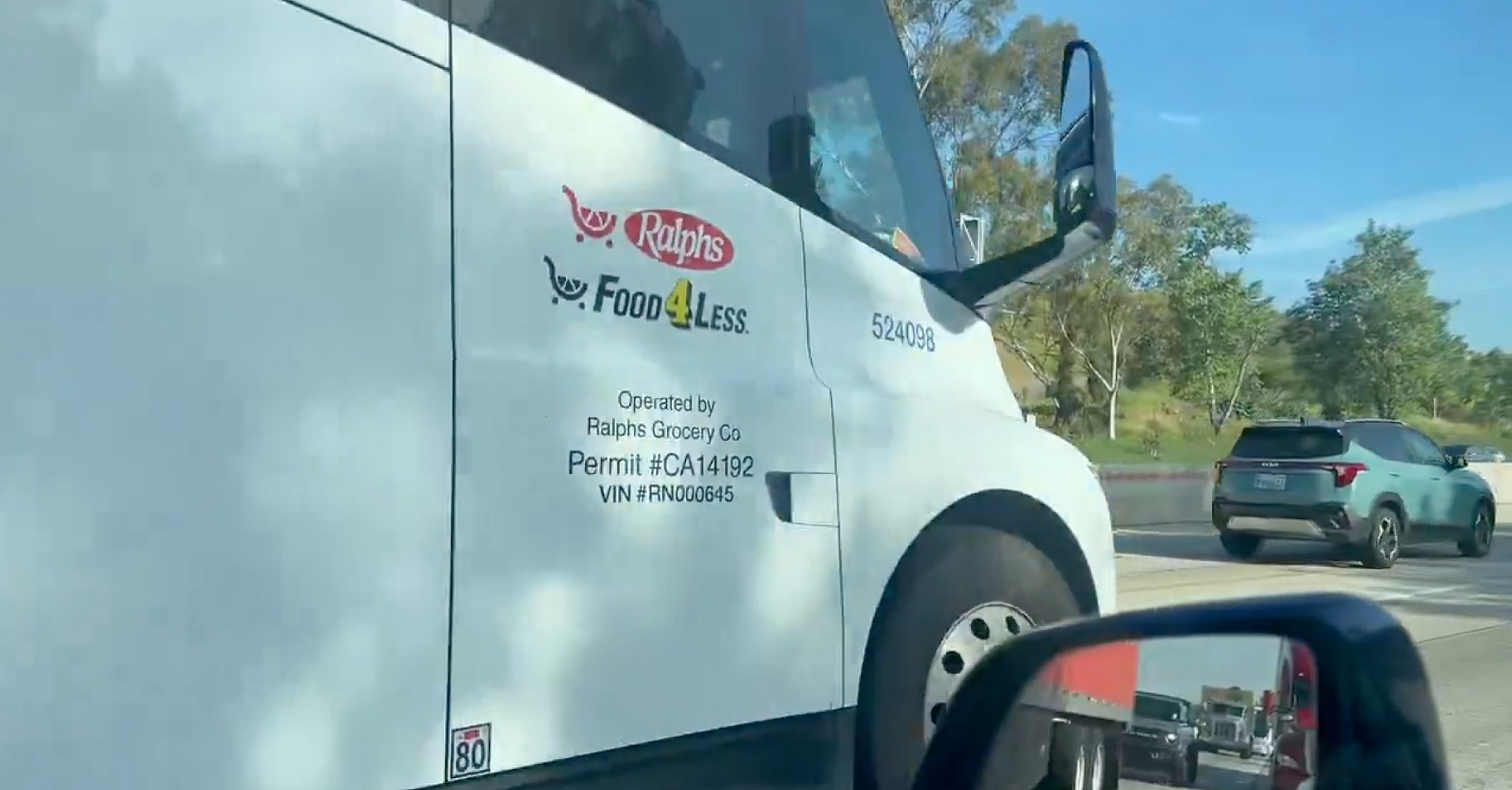
The latest adoptee of the Tesla Semi will likely encourage more businesses in the same realm to adopt the all-electric Class 8 truck, as a new company utilizing the Semi has been spotted in Southern California.
A sleek, futuristic Tesla Semi truck branded for Ralph’s Supermarkets was spotted cruising a Los Angeles highway in a viral 13-second dashcam video posted March 2, by X user ChargePozitive.
Tesla Semi Truck in the wild pic.twitter.com/SnQY8ShMMJ
— ChargePozitive ⚡️➕ (@ChargePozitive) March 2, 2026
This sighting confirms Kroger’s March 2025 partnership with Tesla to deploy up to 500 autonomous electric Semis.
While the initial announcement targeted Midwest supply chains, the California appearance under the Ralph’s banner shows the program expanding to Kroger’s West Coast operations. Ralph’s, a staple for millions of Southern California shoppers, is now hauling groceries with the Semi, which has zero tailpipe emissions and claims up to 500 miles of range per charge.
Tesla Semi pricing revealed after company uncovers trim levels
The timing could not be better for sustainable logistics. Traditional trucking accounts for a massive share of retail emissions, but Tesla’s Semi slashes fuel and maintenance costs while leveraging full autonomy to ease driver shortages and improve safety.
Tesla’s expanding Megacharger network, including new sites along major freight corridors and partnerships like the recently-announced one with Pilot Travel Centers, is removing range anxiety and making nationwide scaling realistic. There’s still a long way to go, but things are moving in the right direction.
Public visibility matters. When shoppers see a trusted name like Ralph’s running clean, high-tech trucks on public roads, skepticism fades. Competitors such as Albertsons, which pre-ordered Semis years ago, and other chains chasing ESG targets now have proof that electric autonomy works in real-world grocery fleets.
PepsiCo’s successful pilots already demonstrated viability, and Ralph’s sighting adds retail credibility.
As Tesla ramps high-volume Semi production through 2026, this isn’t an isolated curiosity. Instead, it’s a catalyst. More grocers adopting the platform will accelerate industry-wide decarbonization, cut operating expenses, and deliver tangible environmental wins.
The future of sustainable supply chains is already on the highway, and Ralph’s just made it impossible to ignore.
Moving forward, Tesla hopes to expand the Semi program into other regions, including Europe, which CEO Elon Musk recently said is a total possibility next year.
Elon Musk
Tesla ramps Cybercab test manufacturing ahead of mass production
Tesla still has plans for volume production, which remains between four and eight weeks away, aligning with Musk’s statements that early ramps would be deliberately measured given the Cybercab’s novel architecture and full reliance on Tesla’s vision-based Full Self-Driving technology.
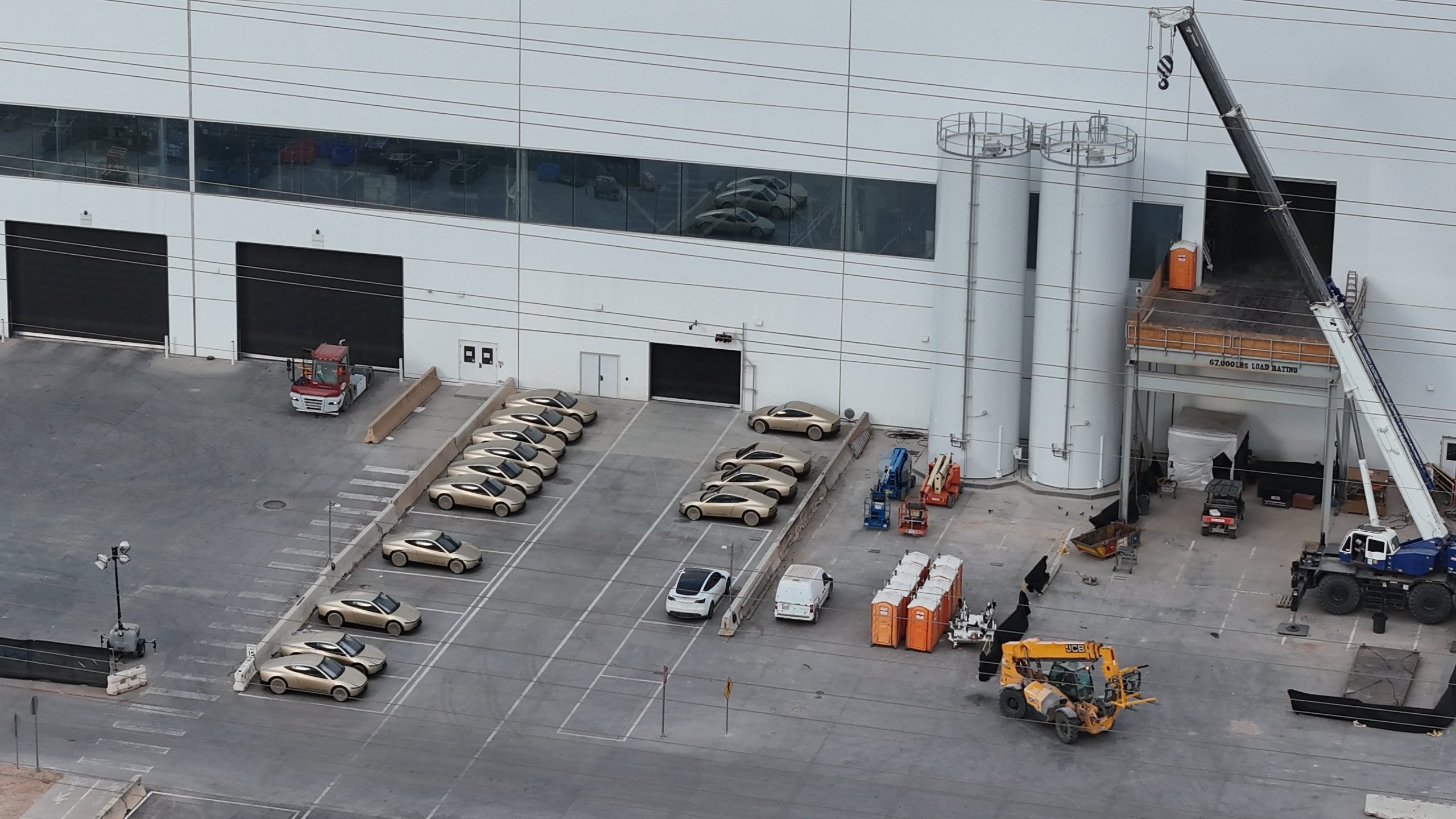
Tesla is seemingly ramping Cybercab test manufacturing ahead of mass production, which is scheduled to begin next month, the company said.
At Tesla’s Gigafactory Texas, production of the Cybercab, the company’s groundbreaking purpose-built Robotaxi vehicle, is accelerating markedly. Drone footage from Joe Tegtmeyer captured striking aerial footage today, revealing what appears to be the largest public sighting of Cyebrcabs to date.
A total of 25 units were observed by Tegtmeyer across the Gigafactory Texas property, marking a clear step-up in testing and validation activities as Tesla prepares for a broader output.
Tesla Cybercab production begins: The end of car ownership as we know it?
In the footage, 14 metallic gold Cybercabs were parked in a tight formation outside the factory exit, showcasing their sleek, autonomous-only design with no steering wheels, pedals, or traditional controls. Another 9 units sat at the crash testing facility, likely undergoing structural and safety validations, while two more appeared at the west end-of-line area for final checks.
Big day for Cybercab at Giga Texas today! Actually, yesterday to kick off March, the production line went into a higher volume & today we see 25 at three main locations, and there were several others I observed driving around too!
I think this may be the largest single grouping… pic.twitter.com/HZDMNv57lJ
— Joe Tegtmeyer 🚀 🤠🛸😎 (@JoeTegtmeyer) March 3, 2026
Tegtmeyer noted additional Cybercabs driving around the complex, hinting at active movement and real-world testing beyond static parking.
This surge follows the first production Cybercab rolling off the line in mid-February 2026, several weeks ahead of the originally anticipated April start.
That milestone, celebrated by Tesla employees and confirmed by CEO Elon Musk, kicked off low-volume builds on the dedicated “unboxed” manufacturing line, a modular process designed to slash costs, reduce factory footprint, and enable faster assembly compared to conventional methods.
Industry observers interpret the jump to dozens of visible units in early March as evidence that Tesla has transitioned into higher-volume test manufacturing.
Tesla still has plans for volume production, which remains between four and eight weeks away, aligning with Musk’s statements that early ramps would be deliberately measured given the Cybercab’s novel architecture and full reliance on Tesla’s vision-based Full Self-Driving technology.
The Cybercab, envisioned as a sub-$30,000 autonomous two-seater for robotaxi fleets, represents Tesla’s bold pivot toward scalable autonomy and robotics.
Tesla fans and enthusiasts on X praised the imagery, with many expressing excitement over the visible progress toward deployment. While challenges remain, including software maturity, regulatory hurdles, and supply chain scaling, the increased factory activity underscores Tesla’s momentum in turning the Cybercab vision into reality.
As Giga Texas continues expanding and refining the manufacturing process of the Cybercab, the coming months will prove to be a pivotal time in determining how quickly this revolutionary vehicle reaches roads in the U.S. and internationally.


